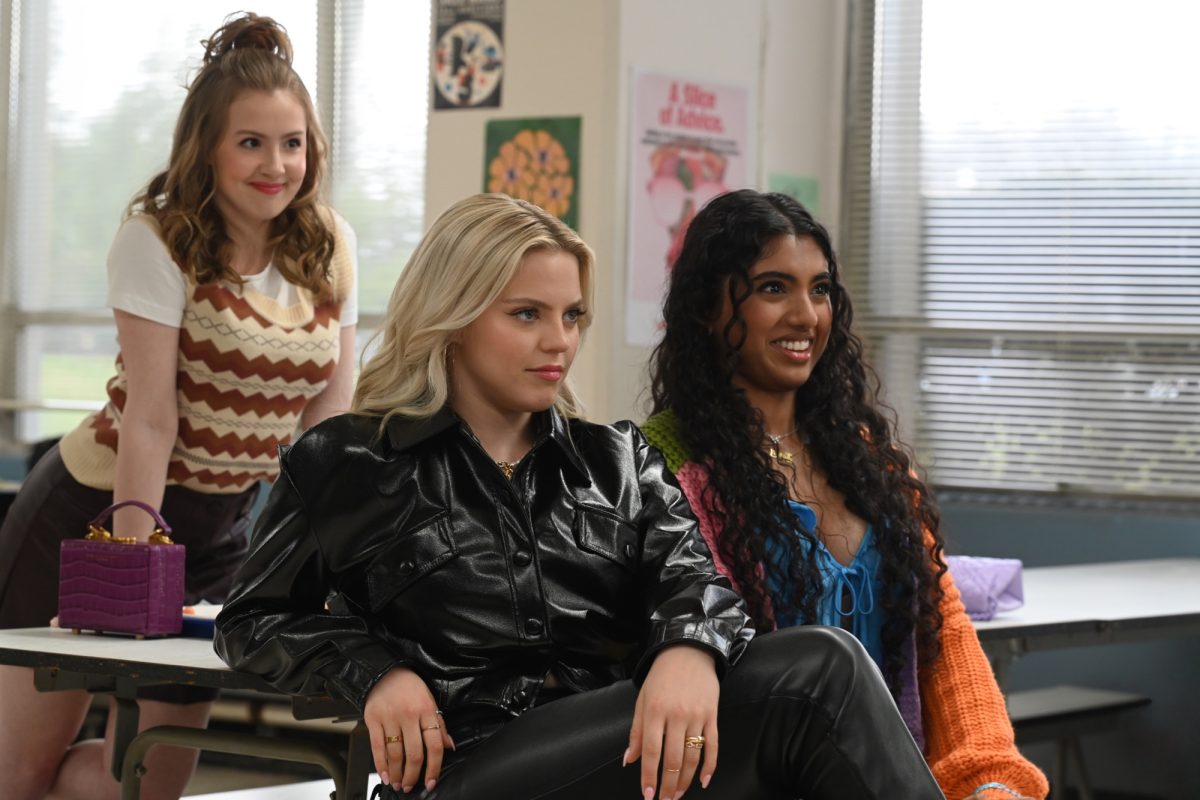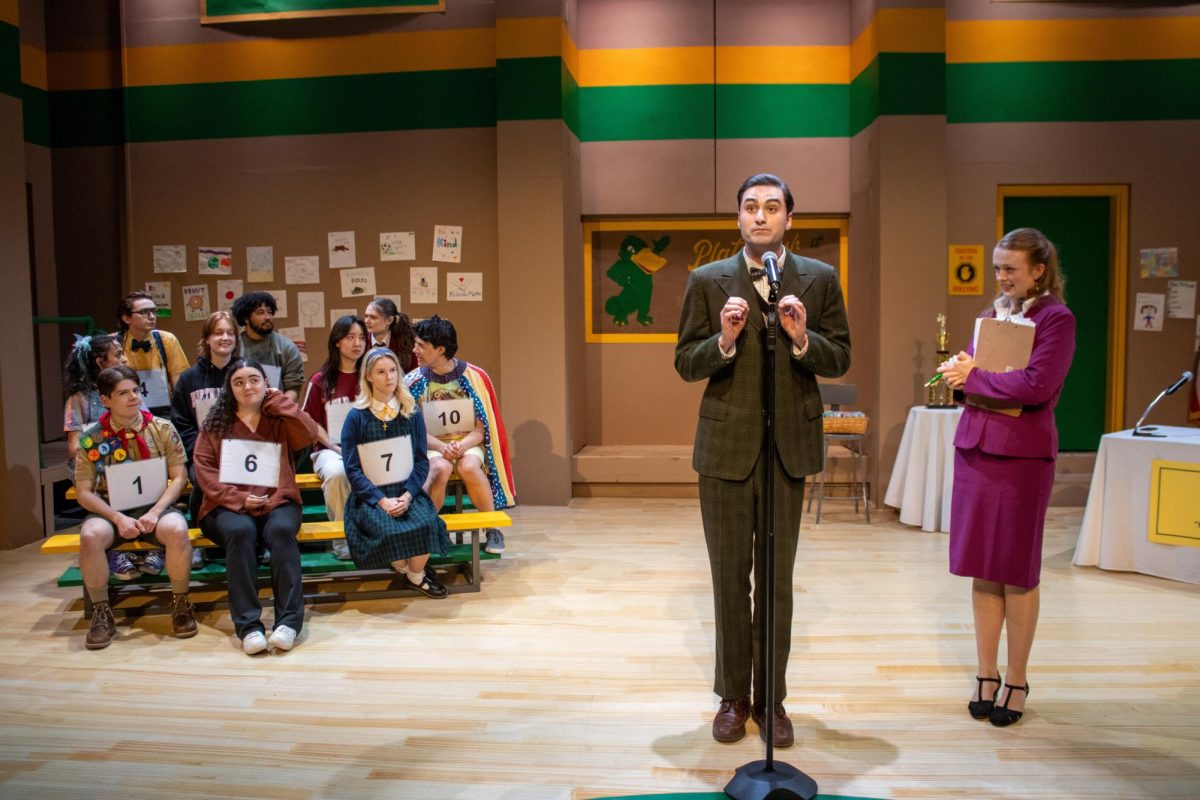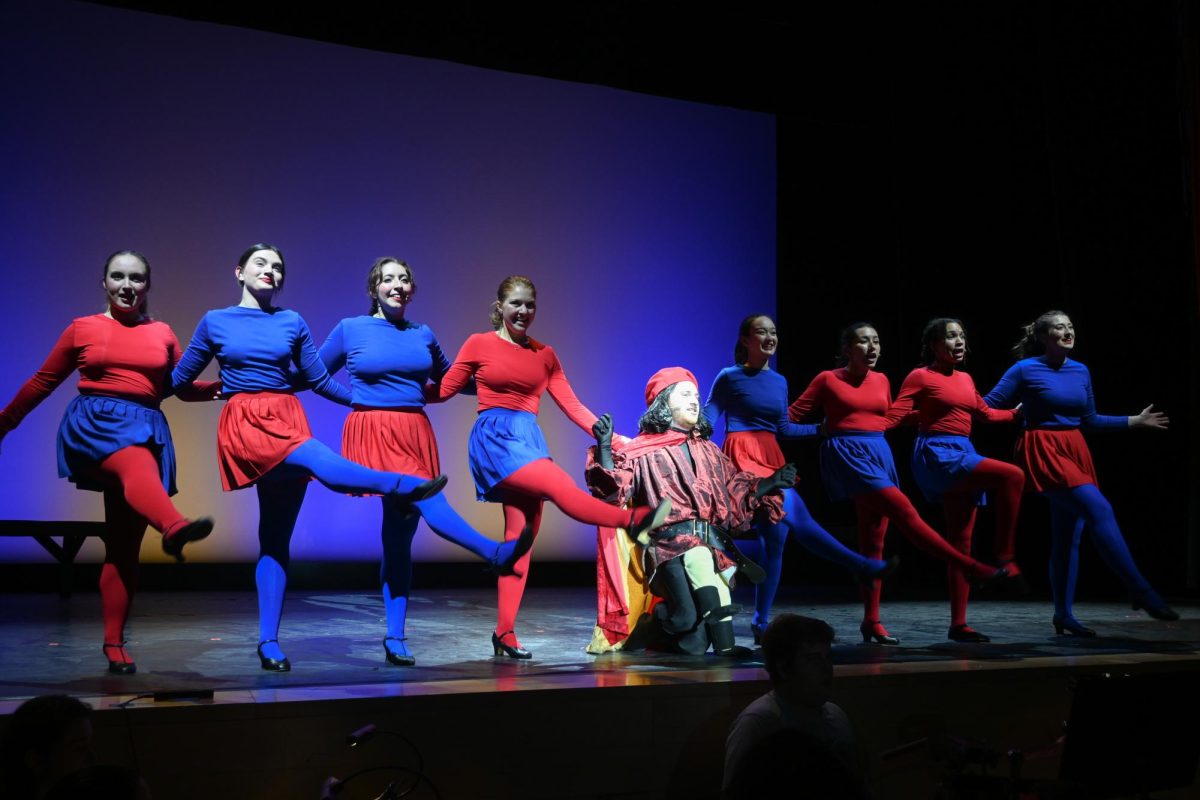To escape the Boston cold, crowds of pink flocked to the AMC Boston Common to endure nearly two hours of singing, dancing and the typical attempt to relate to a predominantly Gen Z audience during Tina Fey’s “Mean Girls” (2024).
In the age of remakes, Fey strayed away from remaking the original “Mean Girls” (2004) and latched on to the Broadway musical — adding a new level of complexity, yet familiarity between the characters and the audience. However, a collective confusion loomed over audience members when Cady (Angourie Rice) broke out into song, causing a joint murmur of, “I had no idea this was a musical.” What sparked the crowd’s surprise was not a lack of marketing, but a lack of musical marketing as critics suggest the appeal for a musical film is rapidly declining
Nonetheless, the audience is reunited with a naive Cady as she navigates a new school after years of homeschooling with her presumably single mom (Jenna Fischer). Off the bat, the casting between this duo is unbeatable, as Rice is Fischer’s uncanny twin — some suggest a perfect mix of Pam and Jim from “The Office.”
After some trial and error, Cady connects with the art freaks, Janis and Damien (Auli’i Cravalho and Jaquel Spivey, respectively), while also being pulled in an unexpected direction of pomp and popularity. Here Cady meets “The Plastics”: oblivious Karen Shetty (Avantika Vandanapu) and a new and improved Gretchen Wieners (Bebe Wood), all of whom fall under Regina George’s (Reneé Rapp) reign.
That said, the true showstopper is Rapp, as her 11 o’clock number, “World Burn,” left the audience with a collective understanding that if anyone was going to save this movie, it would be her. Rapp starred in the Broadway rendition of “Mean Girls” before joining Max’s “Sex Lives of College Girls,” which she recently departed to pursue her music career full-time.
It is no mystery that Rapp introduced her unique flare to Regina’s nature, especially through personality and fashion. For one, Regina’s first appearance shows a more dominant side of the original Barbie-esque character, played by Rachel McAdams. Instead of pink tops and short skirts, Regina George is in a head-to-toe leather set, with massive black boots and darker makeup to truly reveal the prevalent complexities behind her character. Regina’s gold and pearl necklace dangles on her neck with a striking “R,” which subtly is replaced with a “C” on Cady’s neck as she later establishes herself as the new queen bee.
The fashion and personal expression of Gen Z are positively and accurately represented throughout the film. However, there are elements of forced modern lingo that Gen Z themselves cannot even understand. The film begins with Damien and Janis recording a video on their phones, and this motif acts as an idle transition between acts throughout the film. From TikToks to text messages to Snapchat stories, the editing attempts to depict a typical high school environment, but its repetition falls short, leading to more confusion rather than relatability.
Where the movie got lost is simple — the screenplay is strikingly similar to the original film, making the abrupt transitions to songs confusing and unnatural. The release of “Mean Girls” (2004) sparked a cultural reset with references that remain quoted to this day. That said, it is appropriately assumed there is a higher viewer rate of the film, rather than the Broadway musical. Alas, audiences felt a greater connection and familiarity with the former, causing “Mean Girls” (2024) to simply feel repetitive. The iconic lines such as Damien’s depiction of Gretchen, “That’s why her hair is so big — it’s full of secrets,” and, the unforgettable, “She doesn’t even go here,” sparked the most laughter.
Alas, whenever a character bursts into song and dance, the viewer is taken out of the story, sparking laughter for the wrong reasons and causing a comedic story to lose legitimacy. Nonetheless, it is evident who comes from a musical background, à la Rapp and Cravalho. Both actresses stand out on both the soundtrack and screen due to their equal talent between acting and singing, while others were not gifted with this balance.
For example, Rice’s quirky facial movements and prominent uncomfortability in a new setting made Cady’s struggles all the more believable. However, the moment Rice attempts to hit the high notes of “Stupid With Love” in a monotone voice, it is proven that acting is her forte. On the contrary, Aaron Samuels (Christopher Briney) stuck to his looks for good measure and did not sing in the movie rendition, despite the character having numerous solos in the stage musical.
As for the plot, the most recognizable difference between “Mean Girls” (2004) and “Mean Girls” (2024) is Janis Imi’ike — formally Janis Ian — and her representation on a sexual and cultural level. The decision to change Janis’ last name is aimed to honor Cravalho’s Hawaiian heritage but also has a layered meaning of strength and searching for knowledge. The meaning behind Janis’ last name acts as an ever-present nod to the character’s need for revenge toward Regina… cue “Revenge Party.”
Similarly, Janis’ sexuality is a topic of consideration as both she, and her best friend Damien, are confirmed to be queer, allowing for more representation in the LGBTQ+ community. In “Mean Girls” (2004), Regina confuses Janis’ ethnicity, Lebanese, with the false presumption of her sexuality, lesbian. This rumor, made when Janis and Regina were younger, acts as the central divide between them, and later resurfaces when “The Plastics’” burn book is revealed to the school. However, in “Mean Girls” (2024), the plot shifts to recognize the struggles that are part of coming out, as Janis expresses her sexuality to Regina by gifting her a stuffed animal with a rainbow pin — representing the LGBTQ+ flag. This stuffed animal, later seen in Regina’s closet in the childlike music box, spirals into a new nickname for Janis, an obsessed lesbian. A plot change as relevant as this one acts as a needed change of pace for the storyline, but also reflects the challenges that come with being a part of an oppressed community.
To break common film stereotypes, Fey takes a nontraditional yet celebrated approach toward Janis’ character by making her sexuality a typical part of her identity, instead of a constant challenge she needs to face. This normalization is necessary for LGBTQ+ people to ensure their sexuality is uplifted and seen as a part of the status quo. Taking this all into consideration, Janis’ character is deep and fluid, but the line, “I am a pyro-les, loud and proud. I will light your backpack on fire if you talk shit about me,” remains the most comical and real statement throughout the whole film.
Nonetheless, to take the words of a moviegoer leaving the theater, “It was cute!” Despite the unsequential and spontaneous musical moments, “Mean Girls” (2024) provides a solid ground of representation and inclusivity based on the original film that lacks diversity — both providing equal forms of familiarity to younger and older viewers alike.















